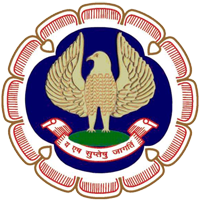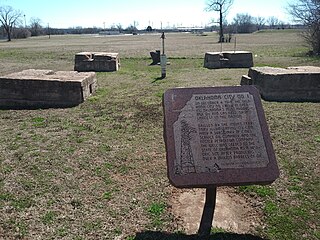Related Research Articles

Accounting, also known as accountancy, is the processing of information about economic entities, such as businesses and corporations. Accounting measures the results of an organization's economic activities and conveys this information to a variety of stakeholders, including investors, creditors, management, and regulators. Practitioners of accounting are known as accountants. The terms "accounting" and "financial reporting" are often used interchangeably.

Natural resources are resources that are drawn from nature and used with few modifications. This includes the sources of valued characteristics such as commercial and industrial use, aesthetic value, scientific interest, and cultural value. On Earth, it includes sunlight, atmosphere, water, land, all minerals along with all vegetation, and wildlife.

In management accounting or managerial accounting, managers use accounting information in decision-making and to assist in the management and performance of their control functions.

An accountant is a practitioner of accounting or accountancy. Accountants who have demonstrated competency through their professional associations' certification exams are certified to use titles such as Chartered Accountant, Chartered Certified Accountant or Certified Public Accountant, or Registered Public Accountant. Such professionals are granted certain responsibilities by statute, such as the ability to certify an organization's financial statements, and may be held liable for professional misconduct. Non-qualified accountants may be employed by a qualified accountant, or may work independently without statutory privileges and obligations.

An audit is an "independent examination of financial information of any entity, whether profit oriented or not, irrespective of its size or legal form when such an examination is conducted with a view to express an opinion thereon." Auditing also attempts to ensure that the books of accounts are properly maintained by the concern as required by law. Auditors consider the propositions before them, obtain evidence, roll forward prior year working papers, and evaluate the propositions in their auditing report.

Forensic accounting, forensic accountancy or financial forensics is the specialty practice area of accounting that investigates whether firms engage in financial reporting misconduct, or financial misconduct within the workplace by employees, officers or directors of the organization. Forensic accountants apply a range of skills and methods to determine whether there has been financial misconduct by the firm or its employees.

Chartered accountants were the first accountants to form a professional accounting body, initially established in Scotland in 1854. The Edinburgh Society of Accountants (1854), the Glasgow Institute of Accountants and Actuaries (1854) and the Aberdeen Society of Accountants (1867) were each granted a royal charter almost from their inception. The title is an internationally recognised professional designation; the certified public accountant designation is generally equivalent to it. Women were able to become chartered accountants only following the Sex Disqualification (Removal) Act 1919 after which, in 1920, Mary Harris Smith was recognised by the Institute of Chartered Accountants in England and Wales and became the first woman chartered accountant in the world.

The Society of Petroleum Engineers (SPE) is a 501(c)(3) not-for-profit professional organization.

The Institute of Chartered Accountants of India (ICAI) is India's largest professional accounting body under the administrative control of Ministry of Corporate Affairs, Government of India. It was established on 1 July 1949 as a statutory body under the Chartered Accountants Act, 1949 enacted by the Parliament for promotion, development and regulation of the profession of Chartered Accountancy in India.
Accounting ethics is primarily a field of applied ethics and is part of business ethics and human ethics, the study of moral values and judgments as they apply to accountancy. It is an example of professional ethics. Accounting was introduced by Luca Pacioli, and later expanded by government groups, professional organizations, and independent companies. Ethics are taught in accounting courses at higher education institutions as well as by companies training accountants and auditors.

Obsidian Energy Ltd. is a mid-sized Canadian oil and natural gas production company based in Calgary, Alberta.

Gholam Hossein Nozari is a conservative Iranian politician who served as oil minister from 2007 to 2009. He was nominated secretary general of the OPEC in June 2012.

The International Federation of Accountants (IFAC) is the global organization for the accountancy profession. Founded in 1977, IFAC has 180 members and associates in 135 jurisdictions, representing more than 3 million accountants in public practice, education, government service, industry, and commerce. The organization supports the development, adoption, and implementation of international standards for accounting education, ethics, and the public sector as well as audit and assurance. It supports four independent standard-setting boards, which establish international standards on ethics, auditing and assurance, accounting education, and public sector accounting. It also issues guidance to professional accountants in small and medium business accounting practices.

Chartered Professional Accountant is the professional designation which united the three Canadian accounting designations that previously existed:

The Oklahoma City Discovery Well was the first successful oil well to be drilled in Oklahoma City, Oklahoma. The December 4, 1928 discovery opened the Oklahoma City Oil Field to extensive exploitation, creating an oil boom that sustained the area through the Great Depression. Because much of the oil was under the existing city, the Oklahoma City field pioneered the use of directional drilling to allow lateral displacement of well bores to reach deposits under developed areas.
In the petroleum industry, allocation refers to practices of breaking down measures of quantities of extracted hydrocarbons across various contributing sources. Allocation aids the attribution of ownerships of hydrocarbons as each contributing element to a commingled flow or to a storage of petroleum may have a unique ownership. Contributing sources in this context are typically producing petroleum wells delivering flows of petroleum or flows of natural gas to a commingled flow or storage.
Lago Petroleum Corporation was an oil production company established by Americans in 1923 that exploited the oilfields in Lake Maracaibo. It was acquired by Standard Oil of New Jersey in 1932. Later it was nationalized.

The Ministry of Oil is one of the governmental bodies of Kuwait and part of the cabinet.
Accounting research examines how accounting is used by individuals, organizations and government as well as the consequences that these practices have. Starting from the assumption that accounting both measures and makes visible certain economic events, accounting research has studied the roles of accounting in organizations and society and the consequences that these practices have for individuals, organizations, governments and capital markets. It encompasses a broad range of topics including financial accounting research, management accounting research, auditing research, capital market research, accountability research, social responsibility research and taxation research.
Canada was the second nation in the world to formally organize its accounting profession, after the United Kingdom, but it occurred in a fragmented manner by both locality and specialty. It would only begin to experience significant consolidation from 2012 onwards.
References
- ↑ Jim Haag (2005). The Acquisition and Divestiture of Petroleum Property: A Guide to the Strategies, Processes and Tactics Used by Successful Companies. PennWell Books. pp. 13–. ISBN 978-1-59370-045-4 . Retrieved 12 July 2013.
- ↑ "Council Of Petroleum Accountants Societies (COPAS) Definition". Investopedia. Retrieved 2013-07-12.
- ↑ Charlotte J. Wright, Ph.D.; Rebecca A. Gallun (2005). International Petroleum Accounting. PennWell Books. p. 27. ISBN 978-1-59370-016 4 . Retrieved 2013-07-12.